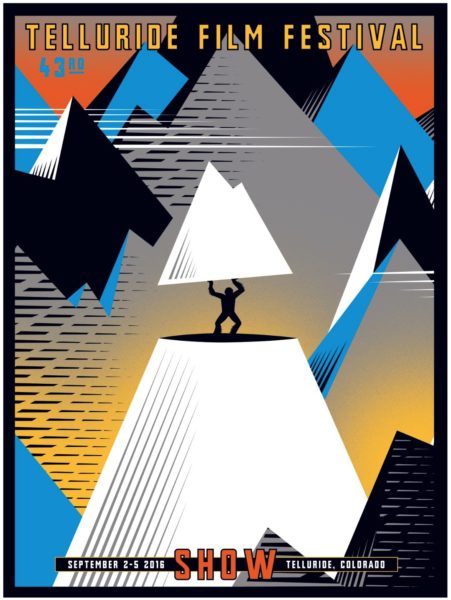
06 Sep Telluride Film Fest 2016: Making A Splash – Again
“This has to be the coolest festival,” actress Emma Stone of “La La Land.”
“Telluride is the best film festival in the world,” 2016 tributee Pablo Larrain.
1549, 155, 208, 3.95
Painting the picture by the numbers, they are respectively the flight number, the headcount of the passengers on board, the seconds it took to save them all, and the price of a tuna fish sandwich purchased by a pilot only months away from retirement, the man who transformed New York’s Hudson River into a landing field back on January 15, 2009, making the splash felt ‘round the world.
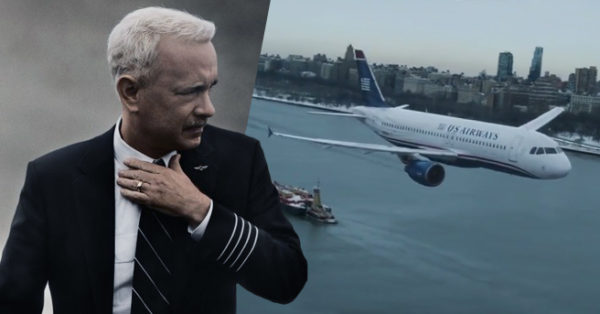
This “Miracle on the Hudson” brought the crowd at the Palm Theatre to its feet: in Telluride, “Sully” flew high under the direction of Clint Eastwood, who did his way: no frills.
Tom Hanks is Sully; part-time Telluride local Laura Linney plays his wife; and Aaron Eckhart, the co-pilot.
Hanks delivered the goods as told, plain and simple, giving a nuanced, internal performance as the competent pilot and safety expert and good-natured, sober family man Captain Chesley “Sully” Sullenberger. Though haunted by all that could have gone horribly wrong, Sully is portrayed as ultimately self-assured, especially when he goes toe-to-toe with the National Transportation Safety Board (NTSB), which tried (and failed) to prove the damaged Airbus could have landed at one of two nearby airports.
Sully triumphs and Everyman morphs into a super hero, becoming a Man for All Times, just in time: in this (election) year of living dangerously, at this “festival of agonizing choices” (thank you, Leonard Maltin), real heroes are reassuring, a balm against the daily drip drip drip of bad and bizarre news. Rather than traveling about in a cape and tights, however, Captain Sullenberger commanded a big silver bird with an easy competence that was ultimately reassuring and, well, uplifting.

During the Q &A that followed “Sully,” to the surprise and delight of the packed house at Telluride’s Palm Theatre, Hanks accepted the applause then went on to praise another festival film, a singing and dancing love story.
The mundane becomes magical in up-and-coming writer-director Damien Chazelle’s modern-day fairy tale, vitally alive and kicking with unabashed, technicolor exuberance and the kind of joy that fills the heart with champagne bubbles.
“La La Land” begins with a traffic jam on an LA freeway, lines of hoofers dancing on a line of car as far back as the eye can see, and a heroine who flips her future hero the bird as he makes a pass – or his car does.
“La La Land” continues in high gear, tipping its hat to other celebrated musicals, among them, “New York, New York,” “The Artist, etc., “Singing in the Rain,” “Bye Bye Birdie,” “The Umbrellas of Cherbourg,” etc. (There is even a “Jaws”-like moment when Hollywood “sharks” dive into a big pool at a posh party. Cue the soundtrack.)
“La Land Land” stars a luminous Emma Stone as Mia, an aspiring playwright and actress, biding her time as a barista on the Warner Brothers lot; and the broodingly sexy Ryan Gosling as Sebastian, a down-on-his-luck, but gifted, jazz pianist who hopes to one day to own a club. The pair of star-crossed lovers do all their own singing and dancing to an infectious score by Justin Hurwitz and lyricist Benj Pasek; Gosling also tickles the ivories (really) with aplomb.
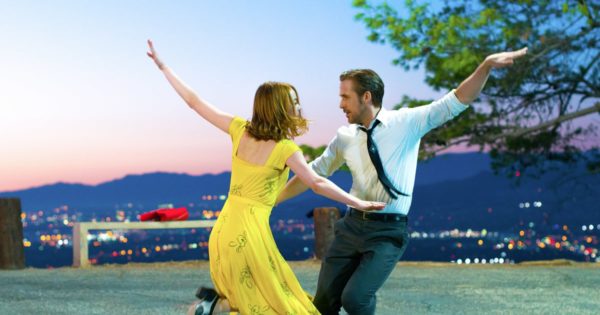
Sparks fly between the two n’er-do-wells, lighting up the screen with chemistry shades of Fred and Ginger, Hepburn and Tracy, before taking a detour off the path to happily-ever-aftering.
With “La La Land,” everything old becomes new again; it’s back to the future with its 1950s set-up sexed up with today’s gadgetry – and pop stars like John Legend.
Hanks all but but handed Chazelle and the cast the envelope, paraphrasing:
“If La La Land can’t succeed and make money, if we don’t fully embrace this film, we are all doomed.”
“Hearts and brains align in this production,” said Telluride Film Festival director Julie Huntsinger.
‘Nuff said: “Sully,” and especially “La La Land,” are among the sure-fire Oscar contenders that emerged at the 43rd annual Telluride Film Festival, which, once again repeats itself (in a good sense) by making a splash.

Smaller films also made waves, among them, “Moonlight,” quietly strong, dark, and difficult like “Room,” and like “Room,” its contents snatched from real-world headlines, in this case those featuring drug-and crime-riddled black neighborhoods.
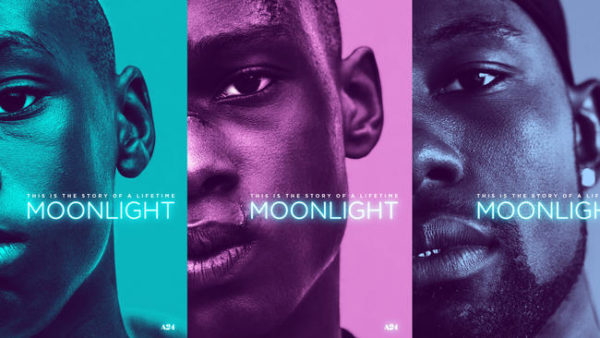
When an artist paints what he knows, the work rings true. “Moonlight” was inspired by Tarell Alvin McCraney’s play “In Moonlight Black Boys Look Blue,” about a Miami neighborhood of pushers and dealers, close to where the director, Barry Jenkins grew up. Incidents also come from Jenkins’ own life and that of his friends and neighbors.
Au courant concerns: current election, loss of privacy, tyranny of smart phones (and potentially, AI), social media – and our country’s growing racial divide.
Black lives never mattered more than in Jenkins’ coming-of-age masterpiece, which features an ensemble cast doing doing their level best to depict the worst. Their performances astound.

However raw and difficult things get, we can’t look away because Jenkins made the smart choice to bathe his story in the cold bright light of day. Sunlight dominates Moonlight: we can run, but we cannot hide from the harsh truth-telling on the screen – not even in a dark, cushy theatre.
American theatre director and regular Film Fest commentator, Peter Sellars waxed rhapsodic about Jenkins’ sophomore film, describing it as “nuanced, subtle, poetic,” necessary and heralding a “new era of filmmaking by African Americans.”
“A socially conscious work of art as essential as it is insightful,” raved Peter Debruge of Variety.
“Moonlight” gives its subject and its hero, Chiron, real teeth. Gold ones in fact.
Eros and thanos also strut their stuff in the elegaic “Manchester by the Sea,” screened at a tribute to Casey Affleck who gives the performance of his career, supported by a wonderful ensemble cast.
Written and directed by Kenneth Lonergan, “Manchester” tells the story of traumatized uncle forced to take care of his teenaged nephew and confront his complex family history (yes, the latter is redundant), after the boy’s father dies.
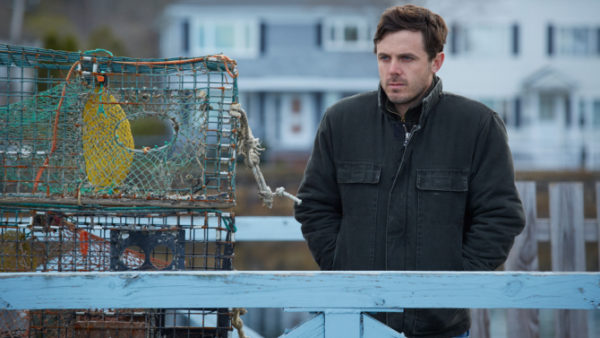
As in “Moonlight,” even in “La La Land,” in “Manchester” real life seems to bleed off the screen, tragedy and humor, yes humor, disappointment and hope, as uncle and nephew spar in an effort to restore a semblance of order to their broken lives following great disappointment and unimaginable loss.
We squirmed.
We cried.
We laughed.
We hoped.
We applauded.
And because Lonergan’s characters are so well, so realistically drawn, we might have had to pinch ourselves to remember the action was happening on a screen with us squirreling in a dark theatre over a holiday weekend.
Affleck was one of three tributees at the 2016 Film Fest; the shape-shifting, beguiling, open, honest actress Amy Adams was another.

Adams stars in Denis Villeneuve’s dreamy sci-fi drama “Arrival,” or “2016: A Spaced Out Odyssey,” ultimately a film about communication (or the global lack thereof) and living in the moment.
Deconstructing “Arrival,” admittedly a bit of a head-scratcher, Adams is Dr. Louise Brooks, a renowned linguist, brought in by Men in Camouflage to communicate with aliens after 12 black, wafer-shaped spacecraft land in 12 distinctly different locations on Planet Earth.
What do the aliens want?
One clue lies in Dr. Brooks’ daughter, whose name, “Hannah,” is a palindrome. Hannah symbolizes love and the nonlinear nature of language and time in the hectapods’ world.
In one of the film’s most dramatic scenes, Dr. Brooks merges with the heptapods’ circular language – and when we merge with a language, any language, Dr. Brooks tells us, we rewire our brains – thus gaining the ability to see the future and relive the past. Despite the fate of her beloved daughter, she chooses to, well, go mindful and live more fully in the moments she has already experienced and has yet to experience.
But can on lone woman scientist, albeit a genius, really manage to topple the Tower of Babel that keeps the world on the brink?
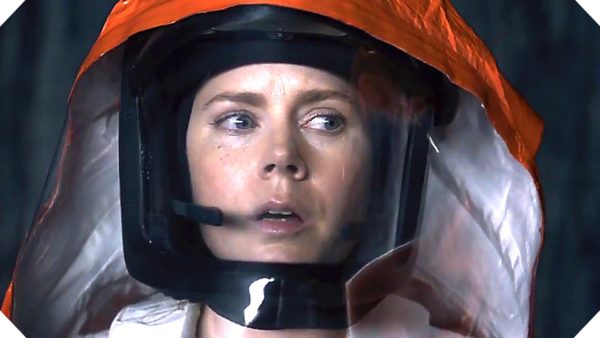
“…dreamy, freaky … and heartfelt,” wrote The Guardian.
We say creepy, complex, and compelling.
If you are a fan of Asimov, Ken Ken, and jigsaw puzzles, this one’s for you.
“Arrival” deserves to be seen more than once.
Film Fest’s third and final tributee was Chilean director Pablo Larrain. His latest film,“Neruda,” is, in turn, a fitting tribute to the “Walt Whitman” of his country, a larger-than-life poet and left-wing politician, in his day, the other “Pablo.”
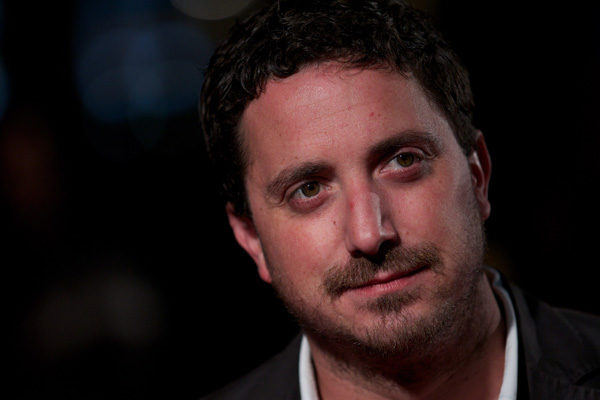
What it is not is a biopic.
Seamlessly blending fact and fiction, we meet Neruda and his antagonist, an investigator Oscar Peluchonneau in 1948, when President Gabriel Gonzalez Videlia betrays his lefty roots and brutally attacks communism.
Enter Peluchonneau a detective who loves detective fiction, determined not to be a secondary character in the real world or the world of Neruda’s novels – but whom the Nerudian character actually writes into existence.
Who is the Sheriff of Nottingham without Robin Hood?
What is the moon without the sun?
Who is Peluchonneau without Neruda?
We see the policeman go dead as stone when Neruda is not willing the man into existence with his marks on the page.
Luis Gnecco gives us a stunning portrait of “Neruda,” half-god, half-satyr; Telluride favorite Gael Garcia Bernal is the delusional, beleagured cop.
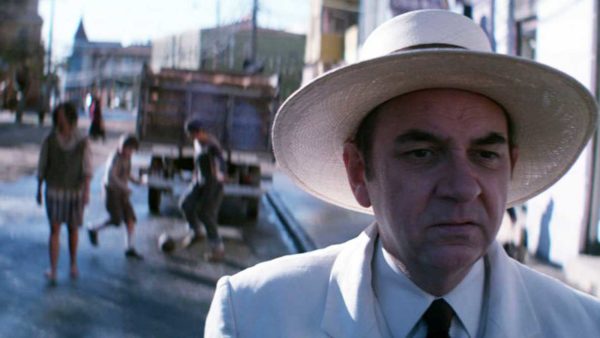
Dexterously mixing bright, bold colors with moody chiaroscuro, Larrain’s “Neruda” is eye food and soul food.
Eros and thanos once again smile back from screen in “Frantz,” another Festival favorite and a remake of Ernst Lubitsch’s “Broken Lullaby,” (1932). “Frantz” is an eloquent, sumptuous, beautifully acted anti-war pic and love story about coming to terms with one of the most important loves: of the self.
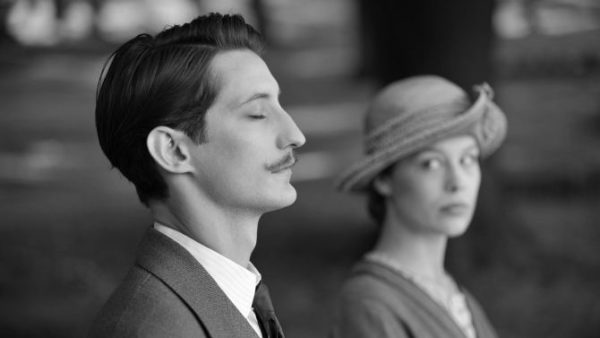
Two films feature jolie laides in starring roles: Fiona in “Lost in Paris” and “Through the Wall.”
Fiona is Fiona Gordon, a ringer for Olive Oyl and one of the best physical actors you will ever see on or off the screen. Ditto her life and professional partner, Dominique Abel. Both give Charlie Chaplin and Buster Keaton a run for their money as stars of “Lost in Paris,” one of this year’s charmers.
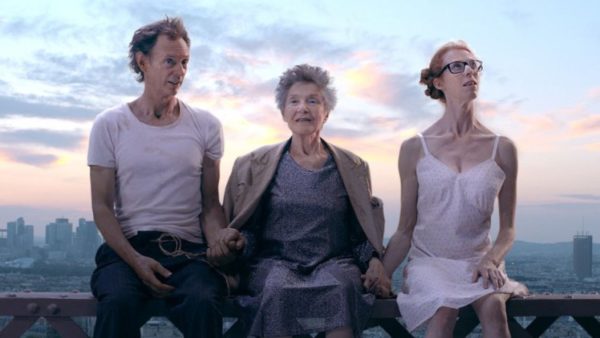
Fiona, a small town Canadian librarian, receives a letter of distress from her aged Aunt Martha, an ex-vaudevillian, living in Paris. The nerdy librarian jumps on a plane only to discover that Martha has vanished in a cascade of spectacular mishaps. Fiona then meets Dom, a seductive, egotistical, impulsive homeless guy, who becomes obsessed. Three wonderfully crazy people finally get unlost in Paris. Bravura clowning performances – and an avalanche of belly laughs.
Cinderella appears to be popular on campus. “Through the Wall” is director Rama Burshtein’s un-Orthodox spin on the classic fairytale about Michal (Noa Kolar) an Orthodox jew, who come hell or high holy days, is determined to get hitched. Does she or doesn’t she? The rom-com delights as we follow this forceful woman who marches to her own drum – and down the aisle.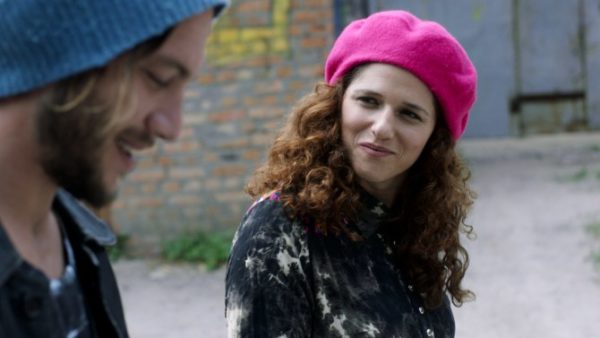
Like “Lost in Paris” and “Through the Wall,” Maren Ade’s “Toni Erdmann” is unconventional fun. The story boils down to an intergenerational struggle between a lovable, off-the-wall dad determined to remove the stick stuck up his daughter’s, well, he hopes to lighten her up, help set her life straight.
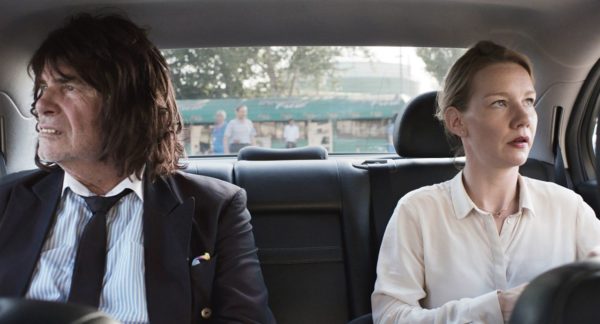
We can’t take our eyes off – though sometimes what he does is so painful, we try – Winfried Conradi (Peter Simonischek), a divorced, retired, aging piano teacher with an alter ego, namely Toni Erdmann, who wears wigs and false teeth – which he constantly lies through. Winfried/Toni drops in unexpectedly on his daughter, Ines, Sandra Hueller, a business consultant, who appears to be cutthroat and cold as ice.
Eventually she melts.
We do too, as Ines strips herself – literally – of unwanted baggage.
Caveat emptor: you may want to think twice about inviting Winfried/Toni to your next Thanksgiving dinner.
Among the touted documentaries is ”Bright Lights,” co-directed with tender loving care by Alexis Bloom and Fisher Stevens. The sprawling biopic – it covers about 25 years and counting – looks at the complex question of why Hollywood diva Debbie Reynolds, now in her mid-80s, is bound to be immortal, “The Unsinkable Molly Brown,” a fact of life guaranteed by her storied acting career. Daughter Carrie Fischer, once Princess Leah in “Stars Wars,” now an actor-writer, reveals herself to be both a troubled genius and feverishly devoted caregiver. self-deprecating and acerbic, with a wit that could cut glass.
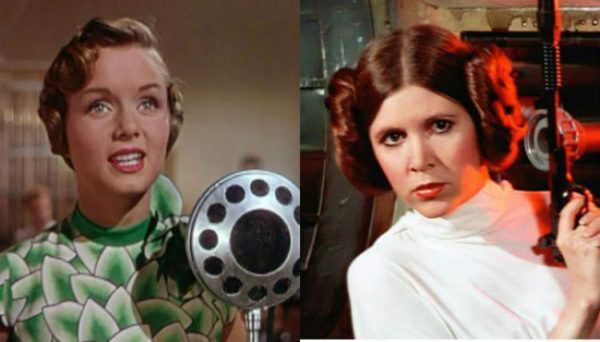
Captain Chesley “Sully “ Sullenberg is not the only one flying high at Film Fest. A girl from the Altai mountains took the town by storm in “The Eagle Huntress.” Like Katniss, Aisholpan has a way with birds. The 13-year-old was this year’s Malala, soaring on the wings of an eagle to greatness in an inspiring story told against the odds by director Alec Bell and a skeleton crew of three determined souls.
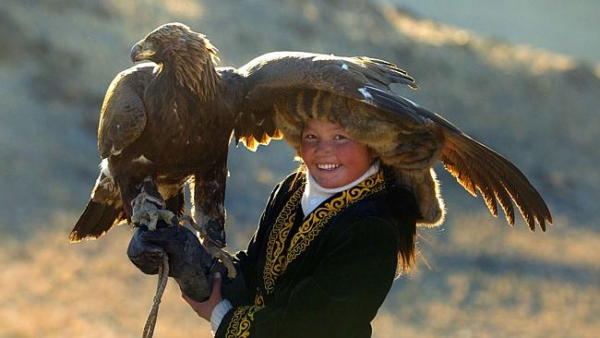
Perhaps, like Malala, Aisholpan will give hope and inspiration to a generation of young men and women on her path to becoming a doctor (notably, like Malala) at a college in the U.S.
What I saw is what you get. Here’s more from New York Times critic AO Scott.
All that and a birthday party for Werner Herzog in Town Park on Labor Day too.

Werner Herzog and Festival director Julie Huntsinger. Credit, Janet Barnhill.


Sorry, the comment form is closed at this time.